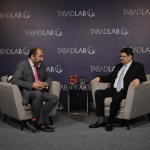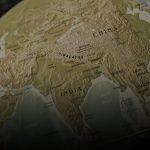You can download the e-reader friendly version here.
What Could COVID-19 Mean for Basic Income, Digitalisation & Citizen-State Relations?
As the Government of Pakistan rapidly announced and disbursed a multi-billion rupee relief package to those affected by COVID-19, Tabadlab convened a Policy Roundtable to shed light on this monumental undertaking. What measures must be adopted to ensure maximum inclusivity, transparency and efficiency through this process? And can a pandemic really allow us to revisit the Social Contract in Pakistan?
Featured Panelists:
- Mudassar Aqil is the Chief Executive Officer (CEO) at Telenor Microfinance Bank Limited and a public speaker.
- Nazish Brohi is a Non-Resident Senior Fellow at Tabadlab, a columnist and social science researcher.
- Dr. Juvaria Jafri is a political economist and an expert in financial development in the Global South.
- Dr. Pervez Tahir was the former Chief Economist and Member Planning & Development Division who holds a Ph.D in Economics from Cambridge University.
- Shandana Khan is the Chief Executive Officer of the Rural Support Programmes Network with 20 years of policy experience in rural development.
Discussion Summary:
Funding
How has the government managed to allocate a PKR 144 billion relief package during COVID-19 and how will it sustain this in the face of the relentless pandemic? What assistance can be expected from international organisations and what will be the long-term ramifications of that relief?
Eligibility
What is the criteria to determine who qualifies for Ehsaas Emergency Cash? How reliable is the data that informs these decisions and how is it compiled? Has the debate remained unfairly fixated on how to weed out “undeserving” applicants to the EEC?
Exclusion
Our speakers argue that despite attempting to penetrate the lowest socio-economic rungs of the country, there is a significant segment left out of the loop. How can systems be built to include inaccessible rural segments of the population, undocumented refugees or simply those without CNICs?
Universal Basic Income
Has the current crisis expedited the need for a long-sought debate on Universal Basic Income? Our panel sheds light on the nuts and bolts of how to build such a programme, whether it can be made sustainable and what macroeconomic repercussions it could have.
Digital transformation
Pakistan may have drastically increased its digital outreach in the past decade, but is this an opportunity to leap forward several spaces? With smartphone penetration, mobile wallets, e-banking and digital commerce becoming commonplace, is it time to allow the inefficiency of existing systems to be replaced?
Social contract
While the role of nation states has been increasingly questioned in the past few decades, can a post-COVID world reframe relations between the citizen and the State? Will citizens view the capacity of their governments through a new lens and learn to expect more from them?
Key Resources:
Sattar, Huma, (April 2020). Ehsaas mechanism: Will it work? – Business Recorder
Pakistan’s Bold Covid-19 Income Support: A Portal For Fiscal Transformation? – Tabadlab
The Ehsaas Anti-Poverty Programme: Building A Compassion State? – Tabadlab
A Resident Fellow and Head of Growth at Tabadlab.







